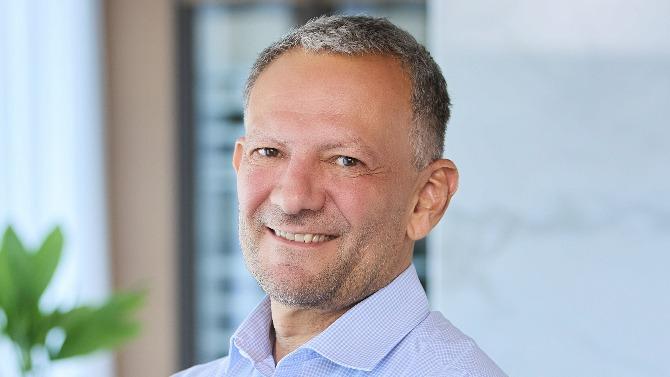
An interview with Samy Walleyo. Despite the pandemic, the Ukraine war and economic uncertainties, many companies have expanded their mergers and acquisitions in the past three years. PwC’s new M&A Integration Study shows: Transactions through which companies gain access to new products and markets are also taking place despite the volatile situation. PwC expert Samy Walleyo explains in an interview what matters in such transformative deals and why technologies are an important enabler for transformation.
About Samy Walleyo: Samy Walleyo has led the Separation & Integration practice at PwC Germany since 2018. During his 25 years of experience in transaction advisory, he has been responsible for large international integration and carve-our projects for DAX companies and international corporations

The past three years have been relatively turbulent for companies. To what extent has this affected M&A activity?
Samy Walleyo: Many companies have expanded their M&A activity in the last three years – despite the pandemic, Ukraine war and economic uncertainties – as well as their commitment to integrating acquisitions.
On average, they put more time, energy and money into transactions, accepting greater risks in order to create value.
Transformative transactions are the latest trend: Companies use deals specifically to adapt their organisation to the major upheavals currency underway in many industries.
Why are transformative deals on the rise again?
Walleyo: Companies are increasingly operating in markets that are rapidly changing through technology. In addition, there are after-effects of the pandemic as well as geopolitical and economic uncertainties.
As a result, CEOs are turning to transformative transactions to realign and readjust their business model for long-term success. Making such adjustments internally or organically, i.e. without a transaction, often simply takes too long.
Every second deal we analysed for our study was a transformative transaction that focused on opening up new products and markets.
Can you give some examples of this?
Walleyo: Numerous industries are currently facing major changes. Take the energy sector, which is facing major upheavals due to the energy transition and the associated move away from fossil fuels.
The situation is similar in the automotive industry: Combustion engines will have to be largely replaced by electric vehicles in the coming decade. To cope with this change and adapt their business models accordingly, many companies are relying on acquisitions or joint ventures. In this way, they can quickly build up the products, markets and know-how needed for the transformation.
The situation is similar in retail and the consumer goods industry. In order to adapt to the changed behaviour of consumers as a result of digitalisation, companies have to change a lot. The acquisition of companies that specialise in certain aspects, such as data analytics or online retail, helps.

PwC’s 2023 M&A Integration Survey
Companies are beginning to crack the code on how to make big, transformative deals successful: leveraging experience, early and sustained investment in integration, and a commitment to creating and implementing new long-term operating models.
How well do companies manage to create value through such deals?
Walleyo: Better and better. Our study shows that companies are performing better on many metrics that measure the financial, strategic and operational success of a transaction compared to 2020. However, almost all the companies we analysed still have room for improvement - especially in how they integrate acquisitions, how they develop new operating models and how they use technology to transform themselves through transactions as the market demands.
What is the formula for making transformative deals work?
Smart deal-makers use large, transformative mergers and acquisitions as catalysts to reposition their companies for future success. Such transactions often serve as accelerators of these change processes. Without acquisitions, such ventures often tend to be slow or insufficiently “disruptive”.
From my point of view, the most important thing is to develop and implement new and long-term operating models in the course of a transaction. This includes investing in integration early and, above all, sustainably. Most deal-makers have understood this: The majority invests more than six percent of the deal volume in integration – this is a significant increase since 2019. In addition, most companies today start integration significantly earlier – usually already during the due diligence phase.
What are the concrete success factors in integration?
Walleyo: On the one hand, the success of a merger or acquisition depends strongly on whether it is possible to keep the talent in the company. Financial incentives – such as participation in the company through shares or direct payments – play just as important a role as non-financial incentives such as career prospects and the company culture. Good change management is also important. Central drivers of successful change management are communication and the rapid filling of important leadership positions.
In my view, however, the most important success factor for M&A integration at the moment is the topic of technology – in my opinion it is the central enabler for the transformation.
In what way?
Walleyo: Data analytics, machine learning and other innovative technologies have long since entered the mainstream. It is therefore hardly surprising that access to technology is one of the most important goals that companies are currently pursuing with a transaction: Nearly three our of four respondents say that access to new technologies is a very important or even the most important transaction objective. And almost nine out of ten respondents see the technological capabilities of the target company as an opportunity to accelerate their own digital transformation.
Contact us

Samy Walleyo
Partner, Leiter Industries, Leiter Deals Strategy and Operations, PwC Germany
Tel: +49 170 2064280







